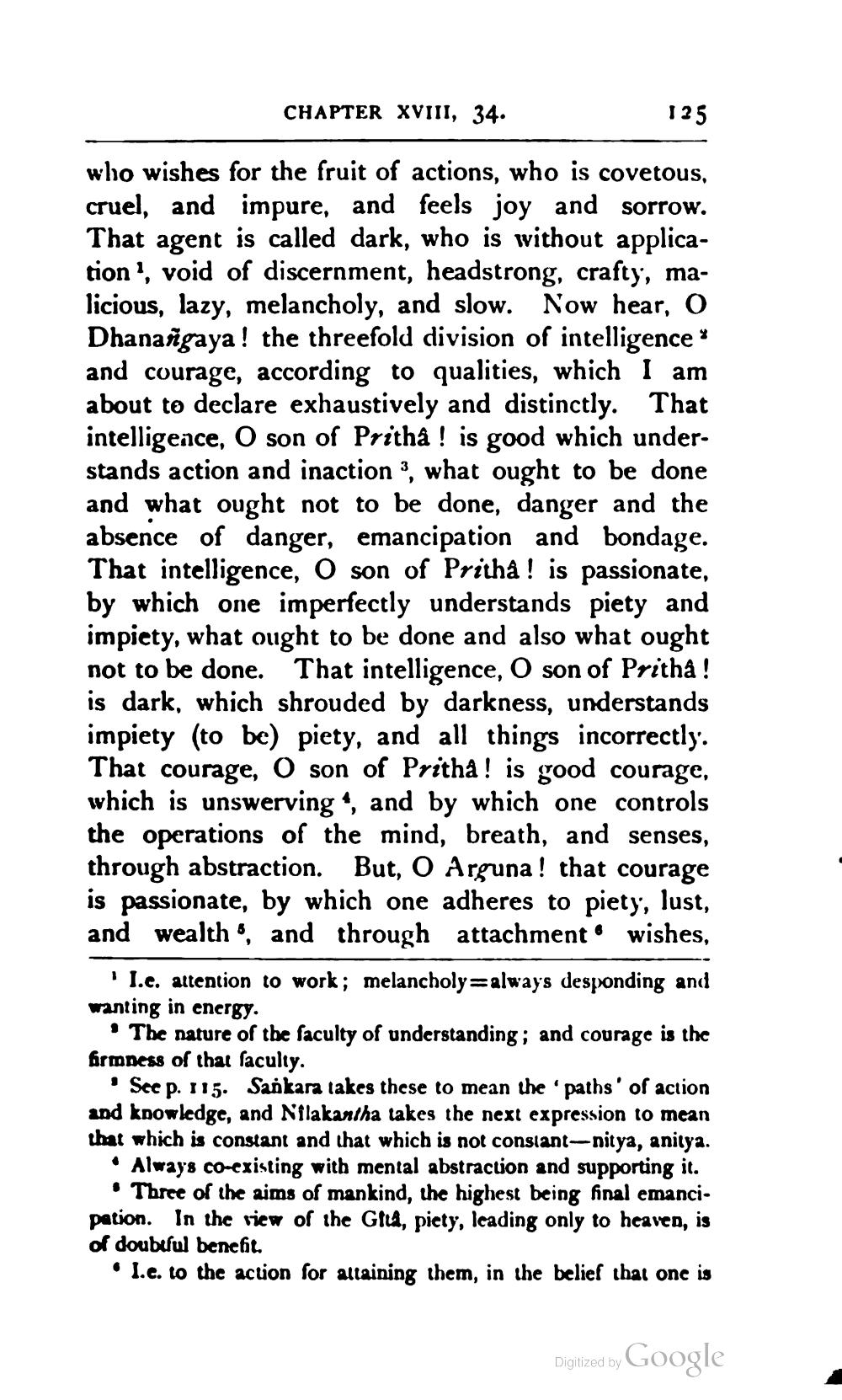________________
CHAPTER XVIII, 34.
125
who wishes for the fruit of actions, who is covetous, cruel, and impure, and feels joy and sorrow. That agent is called dark, who is without application, void of discernment, headstrong, crafty, malicious, lazy, melancholy, and slow. Now hear, O Dhanañgaya! the threefold division of intelligence * and courage, according to qualities, which I am about to declare exhaustively and distinctly. That intelligence, O son of Pritha ! is good which understands action and inaction, what ought to be done and what ought not to be done, danger and the absence of danger, emancipation and bondage. That intelligence, O son of Prithà! is passionate, by which one imperfectly understands piety and impiety, what ought to be done and also what ought not to be done. That intelligence, O son of Pritha ! is dark, which shrouded by darkness, understands impiety (to be) piety, and all things incorrectly. That courage, O son of Prithà ! is good courage, which is unswerving, and by which one controls the operations of the mind, breath, and senses, through abstraction. But, O Arguna! that courage is passionate, by which one adheres to piety, lust, and wealth ®, and through attachment wishes,
' I.e. altention to work; melancholy=always desponding and wanting in energy.
· The nature of the faculty of understanding; and courage is the firmness of that faculty.
· Sec p. 115. Sankara takes these to mean the paths' of action and knowledge, and Nilakantha takes the next expression to mean that which is constant and that which is not constant--nitya, anitya.
• Always co-existing with mental abstraction and supporting it.
• Three of the aims of mankind, the highest being final emanci. pation. In the view of the Gha, piety, Icading only to heaven, is of doubtful benefit.
• I.c. to the action for altaining them, in the belief that onc is
Digitized by Google




